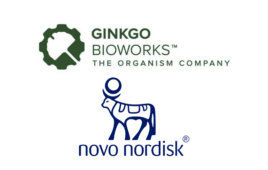 EyePoint Pharmaceuticals (NASDAQ: EYPT) specializes in creating ocular products for serious eye disorders. The company has developed five FDA-approved sustained-release treatments in ophthalmology. The company’s preclinical development program is focused on drug candidates to treat wet age-related macular degeneration, glaucoma, osteoarthritis and other diseases.
EyePoint Pharmaceuticals (NASDAQ: EYPT) specializes in creating ocular products for serious eye disorders. The company has developed five FDA-approved sustained-release treatments in ophthalmology. The company’s preclinical development program is focused on drug candidates to treat wet age-related macular degeneration, glaucoma, osteoarthritis and other diseases.
The company was formed in 2018 after pSivida announced acquired Icon Bioscience.
To learn more about the company, we interviewed EyePoint Pharmaceuticals’ president and CEO, Nancy S. Lurker, who is also an advisor to Novo Nordisk and serves on the board of directors for the company Aquestive Therapeutics.
In the following interview, Lurker touches on what inspires her as the CEO of EyePoint while also providing advice for women interested in pursuing leadership roles within the life sciences industry. (Also check out our conversation with the company’s chief technology officer.)

Nancy Lurker
Preventing blindness seems like a clear mission for the company. How does that mission guide you as the CEO of the company?
Lurker: Everything we do at EyePoint Pharmaceuticals is in service of the most serious, life-altering, vision-related diseases — the ones that can cause blindness. As CEO, this mission serves as a focus that drives business decisions that I’m responsible for leading or collaborating on — from identifying pipeline partnerships to pursuing assets we consider in terms of licensing.
It brings immense passion into the company — for our employees and me. Eyesight is one of the most significant and impactful senses — and knowing the work we do is so focused on preventing people from losing it brings about a tremendous amount of commitment to the company — for everybody.
Many complex and challenging conditions can impact eyesight — such as myopia (farsightedness) and blepharitis (itching eyelids), for example. These are conditions that can be uncomfortable and burdensome and that should not be diminished. But at EyePoint, we are focused on eye diseases that can lead to blindness. Important strides across the industry are being made in the fight for improvements in blinding eye diseases.
By remaining highly specialized in our mission, we can pour all our resources and efforts across R&D into this singular vision.
What led you to the pharmaceutical industry initially?
Lurker: I love science and earned my undergraduate degree in biology and chemistry. At the time, I thought I might later pursue an MD or Ph.D. In my first job out of college, I was a cytogenetic technician. The work at that time was highly manual — looking at children’s bone marrow pre- and post-transplant through an electron microscope, literally cutting out and mapping the chromosomes to look for anomalies. This was done repeatedly for each patient to make sure new bone marrow was being accepted. The work was indeed important and valuable — but it wasn’t for me.
I realized that I liked business and decided to instead pursue working in the business of healthcare. My next roles included inside sales at a chemical company and then working as a pharmaceutical sales rep — a newer path in the industry in the 1980s. Two months into that job, I felt like I had really found my place — I loved it! My career in the pharmaceutical industry grew and evolved from there.
Any advice for other women aspiring to be in executive roles in the pharmaceutical space or healthcare industry at large?
Lurker: Finding a mentor who can help guide and encourage you and having a solid support system outside of work is critical. In addition to a love of science, the importance of confidence and communication can’t be understated.
It can take time to get recognized and find a strong and upward momentum, but it can and will happen if you love the work, seek the right opportunities, advocate for yourself and surround yourself with others who share in your vision. The same principles apply to leadership roles in the corporate healthcare world.
How much progress do you think the healthcare industry has made in addressing gender disparity in recent years? What still needs to change?
Lurker: Progress has certainly been made, but there is more opportunity for and acceptance of women in STEM careers, including leadership positions. There is still much to be done — and it will take a significant and serious commitment to get the industry to where it should be in this regard. I believe it is equally important that both gender and minority disparities are addressed — as it cannot be either-or. It must be both.
Some things should change on the industry level, from the top down. For example, some recruitment efforts have focused on the college market, which does matter — but it has to go deeper than that, starting earlier in education, to help get women and minorities interested in pursuing careers in STEM.
It is important to remember that we do not have to be the best — but we must be passionate to be successful and move up in this field.
What needs to be done to inspire more females to pursue leadership roles in life sciences?
Lurker: Women should feel empowered to be their own best advocate, recognizing what they need and want — and going for it.
Earlier in my career, I had a boss at a pharmaceutical company who said I was lacking in many areas and wouldn’t go any further. I went home, took a step back and recognized two things — that I disagreed with what he had said and that the company was in a challenging place. I decided to quit — and got a better job with a promotion at another company that at the time wasn’t as prestigious of an organization, but I followed my instincts, and it truly worked out for the best. I didn’t let that negative person get to me and stop my trajectory.
All of this is to say — it’s important to listen, accept constructive criticism and find ways to learn and grow. It’s also important to discern that from people who may feel threatened by you — and there will always be those people. It is important to believe in yourself and push through, have clarity in your goals and keep reaching for what comes next.
What happens outside of the workplace also makes a difference. I’ve been fortunate to have a very supportive partner and family. Those who surround women and comprise our individual support networks should be receptive to what we need — from divvying up home- and family-related responsibilities to aligning priorities. It can, and often does, take a village.
I wasn’t a CEO from day one, but being clear about what I wanted and speaking up for myself helped set me on the path to my current role. I advocated for what I wanted, found out what I needed to do to get to each next step along the way — and did it.





Tell Us What You Think!